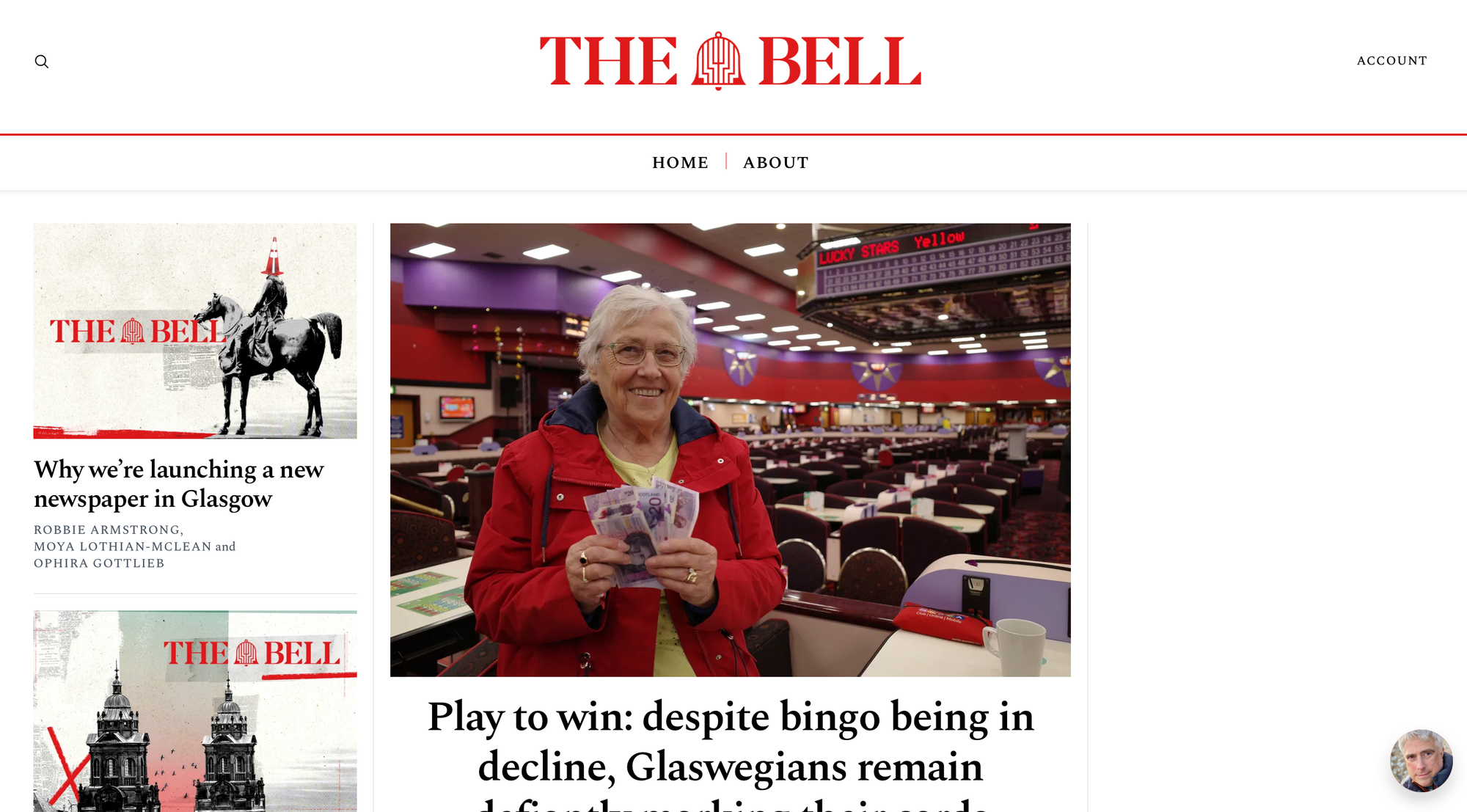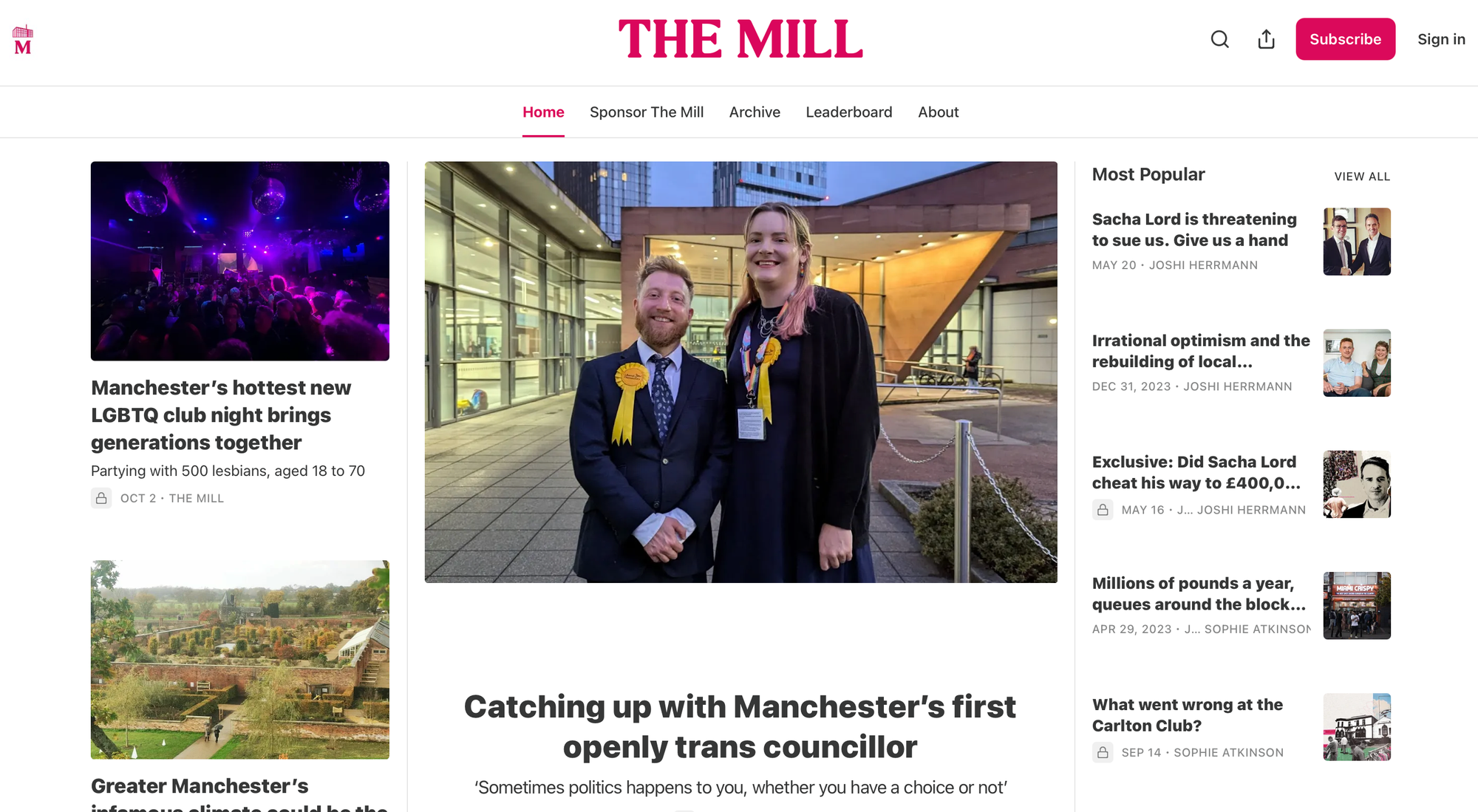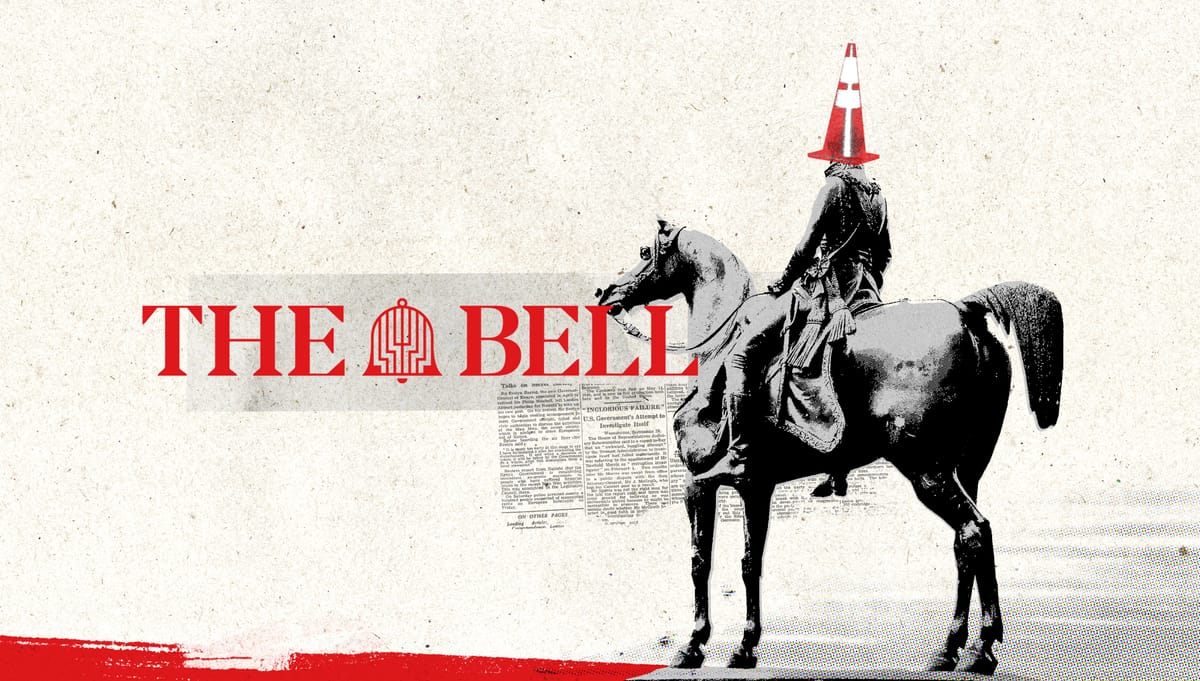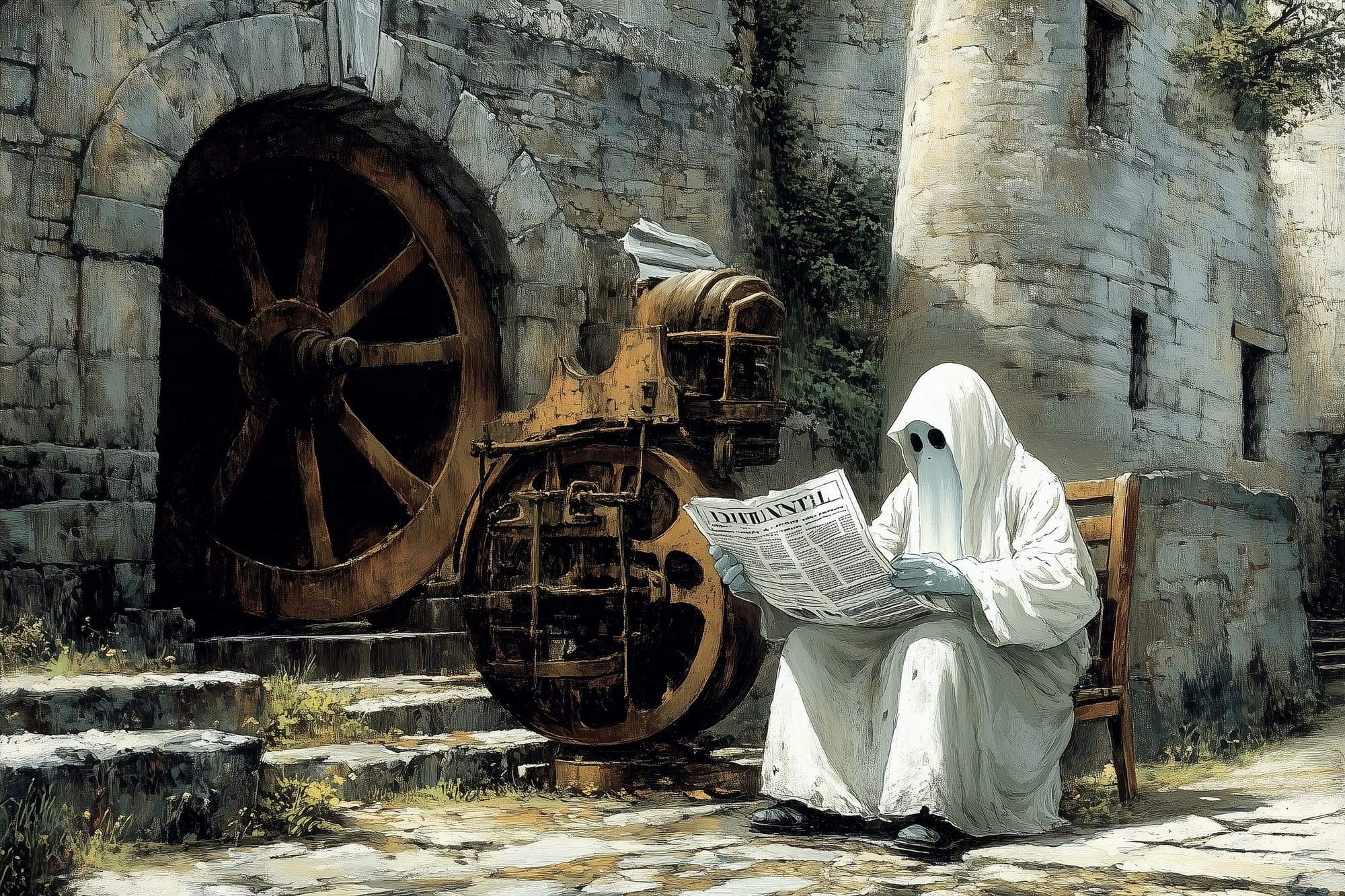The Mill, The Bell, the Ghost and the future of local news
Mill Media's latest site eschews Substack for Ghost. That's great: the web/newsletter/subscriptions space needs competition, and a choice of platforms for publishers.

If there’s one thing I believe in about technology, it’s competition. I’m old enough to remember the bad old days when the Mac was in trouble, and Windows was just about synonymous with “computer”. And that wasn’t good for anyone, including Windows users. With a near monopoly, and a product that made much of its money from sales to corporate customers, Windows was not at its best.
That’s changed. And that’s why, as an iPhone user, I love seeing Android getting better and better. It keeps Apple on its toes. And that’s why I backed the platform I’m using to publish this — Ghost — years ago because I could see WordPress approaching Windows levels of dominance. It needed (and clearly still needs…) competition.
Substack has been drifting in a WordPress/Windows direction of late, with too many people seeing it as synonymous with newsletter-driven publishing. The company, of course, is delighted for that to be the case. Come into their lovely ecosystem! Use their lovely app? Why would you ever leave? And it’ll keep their investors so happy.
Well, it needs competition. And it already has it: but that competition needs some high-profile wins.
Giving Substack some competition
We saw an exodus of publishers to Ghost, during the “Substack Nazi problem” storm earlier in the year. Casey Newton has written about his experience moving Platformer to Ghost, and how it’s impacted his business. And now, we’ve seen UK local media startup Mill Media launch its first site on Ghost. All its previous titles are on Substack.
It’s impressive how similar it looks to the group's other sites. Compare The Bell, the new site for Glasgow hosted on Ghost, and their original site: The Mill (for Manchester).


The Bell and The Mill
They’re clearly products of the same stable, even if the underlying tech is different. That’s good. That’s what we want. Publishers should be able to switch platforms without readers noticing a massive difference.
(I do appreciate the lack of the full-screen take-over asking you to subscribe on the Glasgow, version, though. It’s one of Substack’s more user-hostile growth hacks.)
Ringing the Ball
The Bell officially went live earlier this week. They’ve got two pieces up. A mission statement:

If you're wondering about the image — it's a well-known Glaswegian statue that always has a cone on its head. I took this photo of it in 2002…

And their first piece of journalism is a long-read about… bingo?

There’s at least one sarcastic comment, but, as a dyed-in-the-wool features guy, I enjoyed it. But one piece doesn’t make or break a site. It’ll be the steady flow of articles, and how deeply they engage the people of Glasgow, that’ll make the difference.
The right platforms for local news

To me, this is what the future of local news looks like. OK, maybe not this exact model: Mill Media sites are a little too biased towards the long reads and don’t do quite enough of the commodity information that makes day to day living in a city a bit easier — and I don’t think the two are mutually exclusive.
But using an off-the-shelf platform with a bespoke design, but all the core web publishing, newsletter sending and membership/subscription management handled by the underlying software. The content and member information is portable between services, but day-to-day, the publisher doesn’t need to work about their technology stack. They can concentrate on the journalism, the audience engagement and the business side of the operation.
We’ve — finally — got the tools we need. Now we need the business models, the content strategy and the audience engagement approach to make it all work.







